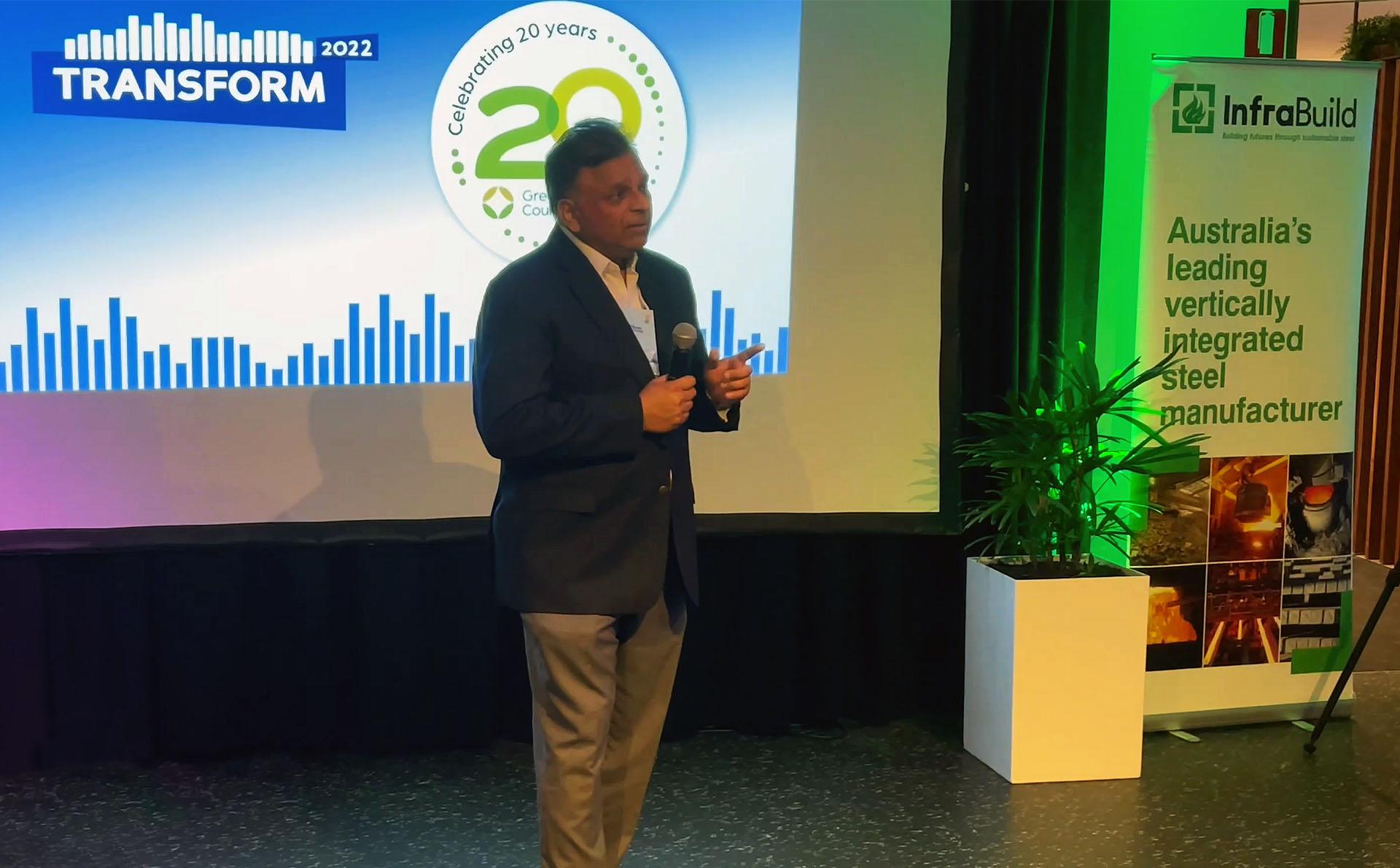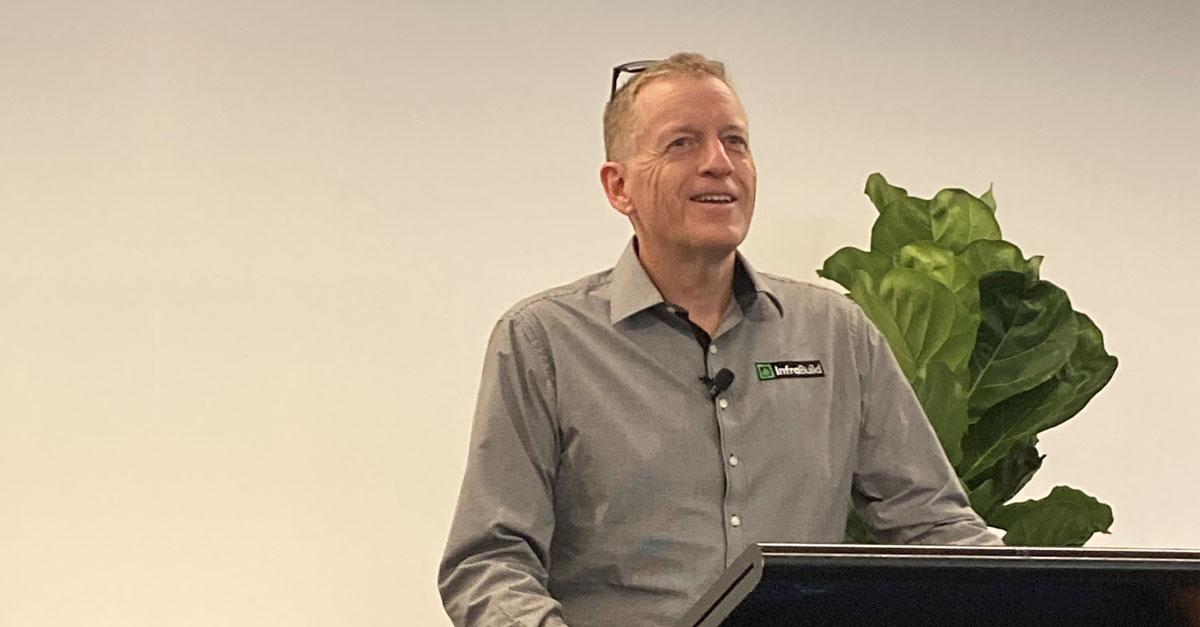
Realising the circular economy
InfraBuild CEO and Managing Director Vik Bansal joined other sustainability experts and industry leaders at this year’s TRANSFORM 2022 Conference.
On the agenda was a range of discussion topics, from the circular economy to responsible products, carbon neutrality and delivering an all-electric future.
Vik was on hand to give a short welcome address to the networking event where he spoke about metal being the next chapter in the global ESG story, along with InfraBuild’s pivotal role in driving circularity.
Also at the conference was David Bell, InfraBuild Sustainability and Insight Manager. During his presentation on “Realising the circular economy”, David shared insights on how InfraBuild was maximising and measuring circularity to support its objective to be a low emission, carbon neutral steel manufacturer by 2030.
Did you know that InfraBuild’s EAF Mills in Sydney and Melbourne use about 1.4 million tonnes of recycled scrap steel each year and have been operating for decades? By maximizing the use of our EAF steelmaking abilities, we are increasing circularity, reducing the need for virgin materials, and diverting scrap steel from landfill.
“InfraBuild is committed to its role in the circular economy, which means making use of materials and techniques that extend the lifespan, recyclability and reuse potential of the things we produce while minimising waste,” he said.
“Even by-products from our steelmaking are valued and useful. For example, slag produced by our steelmaking operations is crushed, screened, tested, and approved for use in various construction applications, including as a road-base.”

But as David explained, there is an evolving need to quantify material circularity – something InfraBuild has addressed in its latest Environmental Product Declarations (EPD).
“We introduced Material Circularity Indicators (MCI) into our EPDs because they talk to the recycled nature of a product during manufacturing, what happens to it during use, and its recyclability at the end of life.”
MCIs help support and advance conversations the market can have on circularity, by providing a metric that sustainability professionals, procurements specialists and contractors can use in their projects. It also provides InfraBuild with an important metric that can be used to understand what affects circularity and how we can further improve and maximise our own circularity outcomes.
“Steel also has the inherent ability to retain its properties and quality through each transition from being collected as scrap to being made into new steel products, which also contributes to its high MCI values,” he said.
“All of this helps us deliver decarbonised steel solutions to our customers and support the construction industry in their efforts to adapt, repurpose and reuse.”
Capping off the presentation was the GBCA’s acknowledgement of InfraBuild’s Warm Charging technique as a valid ‘Energy Reducing Process’ in their Green Star ‘Design and As-built’ tool – equating to 1 Green Star Point.
Warm Charging refers to the practice of minimising the time between the billet being cast and entering the rolling stage of manufacture. If done consistently and effectively, it can deliver significant savings in gas use, and therefore carbon emissions.
InfraBuild’s current Warm Charging is delivering a reduction in our Scope 1 energy use at our Laverton and Rooty Hill rolling mills.
You can learn more about InfraBuild’s sustainability credentials here: Sustainability – InfraBuild
Please contact us for any feedback or media enquiries about this content.
Subscribe to the
InfraBuild newsletter
Receive regular updates on news, case studies as well as the latest products and services.
